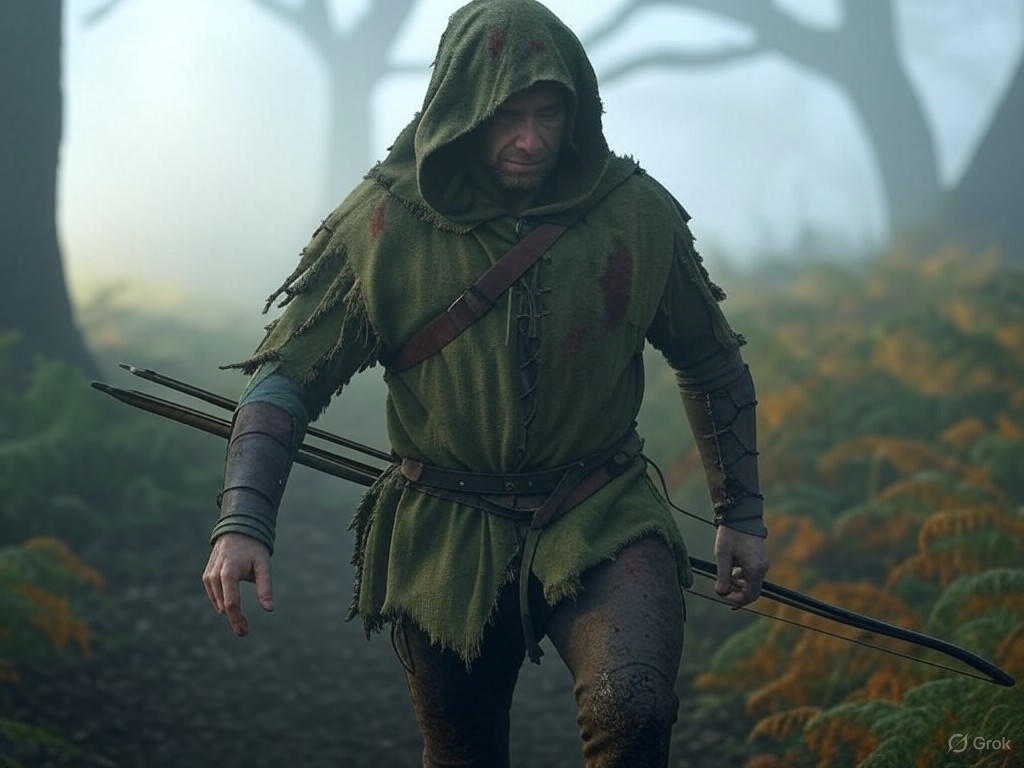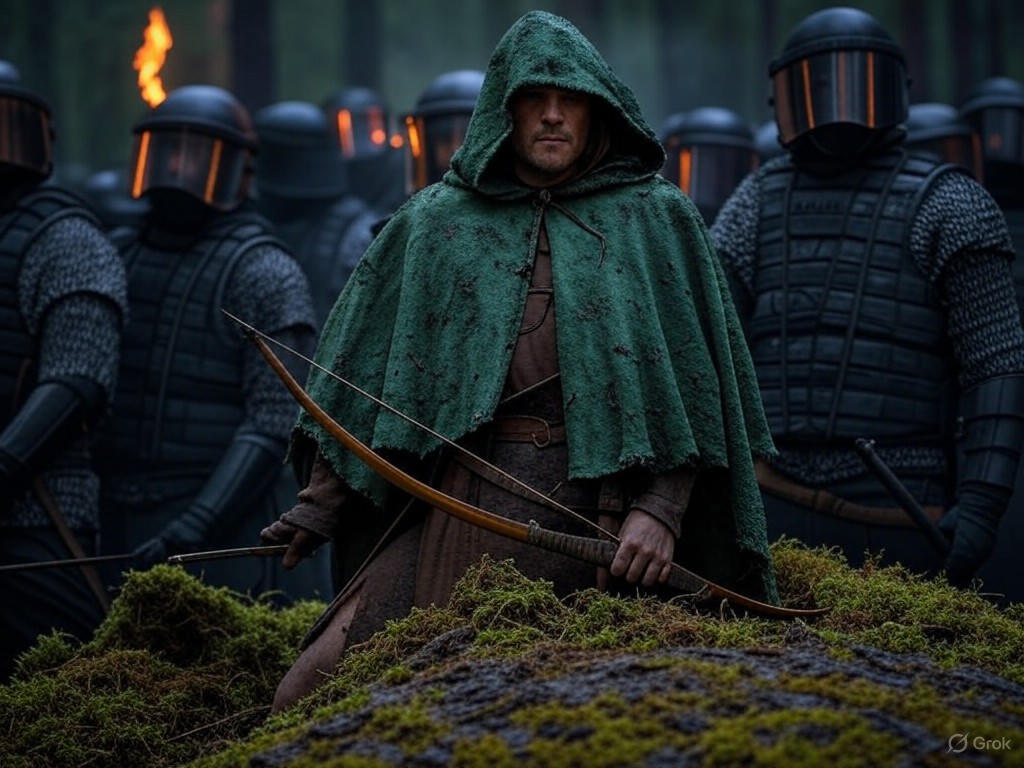The Death of Robin Hood: True Brit’s Bold New Venture
In the shadowed glades of Sherwood Forest, where legend whispers through the oaks, a new arrow flies straight and true. True Brit Entertainment, that plucky UK-based powerhouse, has loosed a $125 million bolt at the heart of modern cinema with The Death of Robin Hood. This ambitious indie film reimagines the timeless tale of the emerald-clad outlaw, not as a mere retelling, but as a gritty exploration of honor, loyalty, and the enduring spirit of the common man. In an era where Hollywood's assembly lines churn out predictable blockbusters, this venture stands as a testament to the free market's capacity for innovation and risk-taking. Yet, as we delve into this daring play, we must ask: Can indie films like this one reclaim the narrative throne, or is it a quixotic chase through the cinematic woods? Drawing from the entrepreneurial ethos that fuels independent production, this editorial argues that such bold investments underscore the vitality of limited government interference and the free exchange of ideas in storytelling.
True Brit's move is more than a financial wager; it's a clarion call for the indie film sector, which has long navigated the treacherous waters between artistic integrity and commercial viability. Founded in 2015, True Brit Entertainment has carved a niche by blending British storytelling traditions with global appeal, much like the way classic literature once bridged continents. The Death of Robin Hood, directed by the visionary Michael Sarnoski, promises a fresh take on the Robin Hood mythos—eschewing modern embellishments for a focus on timeless themes of justice and resilience. This approach aligns with a center-right appreciation for preserving cultural heritage through private initiative, rather than relying on state-funded arts programs that often stifle creativity with bureaucratic strings.
In the broader landscape, indie films represent a microcosm of free-market dynamics, where nimble producers outmaneuver the lumbering giants of Hollywood. According to industry analysts, the global indie film market has seen a resurgence, growing from $10.5 billion in 2019 to an estimated $15.2 billion in 2023, driven by streaming platforms and audience demand for authentic narratives Variety. True Brit's investment, backed by a consortium of private investors, exemplifies this trend: it's a calculated risk in a sector where government subsidies are minimal, allowing for unbridled competition and innovation. Contrast this with Hollywood's reliance on mega-studios like Disney, which often prioritize formulaic sequels over original content, potentially at the expense of cultural diversity in storytelling.

Hugh Jackman embodies a rugged, tradition-bound Robin Hood, symbolizing the film's nod to classic British folklore amid a modern indie revival.
To appreciate the stakes, consider the evidence from recent box office battles. The Death of Robin Hood is poised to challenge the status quo, much like other indie successes such as The Revenant or Whiplash, which grossed over $500 million combined on budgets under $50 million each The Hollywood Reporter. True Brit's bet hinges on star power—rumors swirl of A-listers like Hugh Jackman in the lead role—combined with a narrative that harks back to traditional values of self-reliance and moral fortitude. Economically, this model thrives without the heavy hand of regulation; in the UK, for instance, the British Film Institute offers modest tax incentives, but it's the private sector's appetite for risk that truly propels projects forward Wall Street Journal. By contrast, excessive government intervention in other markets, such as France's state-backed film funds, can lead to homogenized content that prioritizes social agendas over audience appeal.
Yet, not all is merry in the greenwood. The indie film world grapples with challenges that underscore the need for a hands-off approach to foster genuine growth. Production costs for The Death of Robin Hood reportedly soared due to location shooting in the UK’s historic sites, highlighting the volatility of independent financing Deadline Hollywood. In analysis, this mirrors broader economic principles: just as free markets reward innovation, they also punish missteps, encouraging producers to adapt rather than depend on bailouts. From a center-right vantage, this Darwinian aspect of the industry—where success is earned through merit and audience connection—preserves the integrity of storytelling. Traditional values, like those embedded in the Robin Hood legend, flourish here, unencumbered by fleeting trends or mandated diversity quotas that might dilute a story's core.

This conceptual artwork depicts Robin Hood's defiant last stand, capturing the film's theme of individual resilience in the face of tyranny—a hallmark of indie cinema's free-market ethos.
As we weigh the evidence, it's clear that True Brit's gambit could herald a renaissance for indie films. Data from the UK Film Council indicates that indie productions contribute significantly to economic growth, generating over £5 billion annually in exports without direct government aid British Film Institute. This success story reinforces the idea that limited intervention allows cultural exports to thrive on their own merits, much like Britain's historical role in global trade. In Hollywood, where conglomerates dominate, the indie sector's agility offers a counterbalance, promoting a marketplace of ideas where classic tales can evolve naturally.
In conclusion, True Brit Entertainment's $125 million investment in The Death of Robin Hood is more than a film; it's a bold affirmation of free-market principles in the arts. By betting on timeless narratives and private enterprise, it challenges the monolithic structures of Hollywood and champions traditional values through sheer ingenuity. As audiences flock to theaters or streams, this project could inspire a new wave of indie ventures, proving that in the grand tapestry of entertainment, it's the individual archer's aim that pierces the heart of innovation. Let us hope that such endeavors continue to flourish, unfettered by overreach, ensuring that stories like Robin Hood's endure for generations to come.

